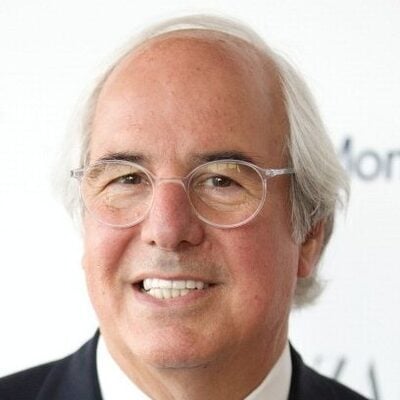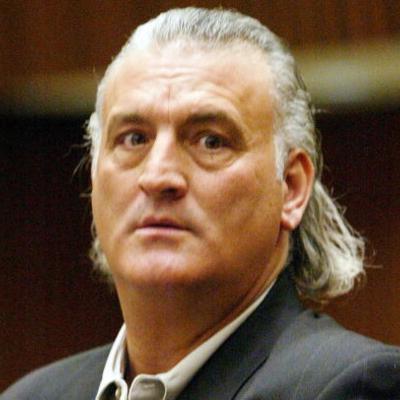What was Nicky Barnes' Net Worth?
Nicky Barnes was an American ex-criminal and government informant who had a net worth of $500 thousand at the time of his death. At the peak of his drug trafficking career, Nicky was worth over $50 million. He was portrayed by Cuba Gooding, Jr in the 2007 movie "American Gangster."
Nicky Barnes was notorious for creating the Council, an African-American organized crime syndicate that controlled much of the heroin trade in Harlem. Barnes led the syndicate into becoming a major drug trafficking ring. He appeared on the cover of "The New York Times Magazine" in June 1977 as "Mr. Untouchable." Due to Barnes' notoriety, President Jimmy Carter ordered his prosecution. In early 1978, Nicky was sentenced to life in prison for his drug crimes. While in prison, Barnes learned that his Council members had betrayed him, including one who was having an affair with his wife. Consequently, Barnes turned informant for the government, resulting in the indictment of over 40 other alleged criminals. His cooperation led to a reduced sentence of 35 years, and he was freed in the summer of 1998. Nicky spent the rest of his life in the Federal Witness Protection program and died on June 18, 2012 at the age of 78.
Early Life
Nicky Barnes, born Leroy Nicholas Barnes on October 15, 1933, in the Harlem neighborhood of New York City, had a tumultuous childhood due to his father, an abusive alcoholic. This led Barnes to leave home early. To support himself, he began dealing drugs and eventually became addicted to heroin. He managed to go clean after a stint in jail. However, his life of crime continued, leading to his imprisonment in 1965.
Career Beginnings
During his imprisonment, Barnes met Joe Gallo, an Italian-American mobster from the Colombo crime family, and heroin dealer Matthew Madonna. Joe Gallo, aiming to bolster his presence in Harlem's heroin market but lacking personnel, struck a deal with Barnes to put together a team. Gallo provided Barnes with a lawyer who managed to overturn his conviction. Upon his release, Barnes assembled his organization of drug dealers in Harlem.
The Council
In 1972, Barnes founded the African-American organized crime syndicate, the Council, to manage and address the issues of drug distribution among African-American gangsters in Harlem. The Council comprised Barnes and six other men: Guy Fisher, Wallace Rice, Joseph Hayden, Ishmael Muhammed, Thomas Foreman, and Frank James. Modeled after the Italian-American Mafia, the Council dealt with local criminal disputes and drug distribution challenges. They sourced raw heroin from Matthew Madonna of the Lucchese crime family.
By the mid-to-late 70s, the Council's operations were expansive, distributing heroin throughout New York, New Jersey, Pennsylvania, and even extending into Arizona and parts of Canada. They also hired contract killers to protect their interests. Barnes's success and ability to evade charges earned him the moniker "Mr. Untouchable."
Assets and Wealth
At his peak, Barnes's net worth exceeded $50 million. He lavishly spent millions on Italian shoes, jewelry, custom-made suits, and luxury cars including a Bentley, a Maserati, a Citroën SM, and several Cadillacs and Ford Thunderbirds. To shelter his assets, he created front companies. However, the Drug Enforcement Administration eventually seized his assets including the cars.
Prosecution and Imprisonment
In 1977, Barnes's appearance on the New York Times Magazine cover led President Carter to direct the Attorney General to aggressively prosecute him. Barnes was sentenced to life imprisonment without the possibility of parole.
Informant
While in prison, Barnes discovered that the Council was no longer paying his lawyers, and that one of its members, Guy Fisher, was having an affair with his mistress, violating Council rules. Seeking revenge and frustrated with his betrayal, Barnes became a federal informant. He provided a list of 109 names, including Council members and his wife, resulting in numerous indictments and convictions. Barnes also implicated himself in several murders.
Post-Prison Life and Death
Due to his cooperation, Barnes's life sentence was reduced, and he was ultimately released in 1998 after serving about 30 years. He entered the U.S. Federal Witness Protection Program. In 2007, he published his memoir "Mr. Untouchable: My Crimes and Punishments," and was featured in the documentary "Mr. Untouchable." Barnes passed away from cancer in June 2012, but the news was kept secret for seven years due to his protected status.








